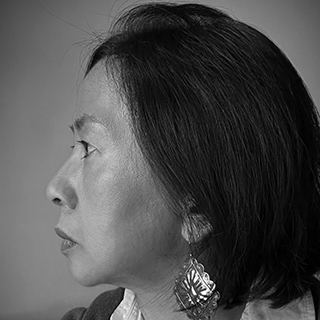Why appropriation is not necessarily the same as mastery
The child wants to know the names of all the herbs and spices on the shelf: those
roots floating in a jar like a stunted man treading water, those dried leaves
twisted carelessly with twine and left in the kitchen drawer.
Sounds made in a different tongue are often so enchanting— at the start, they are
like rain falling, plinking over looped chains in the garden.
Remember that things have names. It is important to know that one thing will
not always substitute for another. The beautiful berry leaves a dark stain on the
tongue, a body lifeless in its bed.
Remember that a syllable can be slighter than an eyelash. The way it flicks up or
down can mean a question, or your chin.
The violinist recounts a fairy tale of a boy kept years with others like him in
captivity. They buff the witch’s floors to the sheen of glass, gather the fine amber
dust in the air to bake into bread, the dewdrops in the hearts of roses to feed her
unslakable thirst.
Later, trying to remember, the one bewitched says phrases over and over. But
there is no one there to catch his mistakes, to help him put the pieces back
together.
And you, you’ve been such a good student of that epistemology, of thinking-into-
being: don’t you know that spells are made of words?
Remember too: not all saying is true.
I have heard another story: how the Pont de l’Archevêché groans with the weight
of hundreds of padlocks, etched with promises made to eternity. What happens
when the language of the promise is wrong, when the word for “expensive” is
used instead of “love?”
Do you glimpse my original shape beneath this overlay of form? The rain falls
and falls over the village. The tailor sews in his shop, the fiddler plays a tune by
the fire.
Arrival is recognition, which brings a catch in the throat. We weep when words
break through a surface. We weep when we have seen ourselves.
Copyright © 2014 by Luisa A. Igloria. This poem originally appeared in Ode to the Heart Smaller than a Pencil Eraser, Mat 2014. Used with permission of the author.

